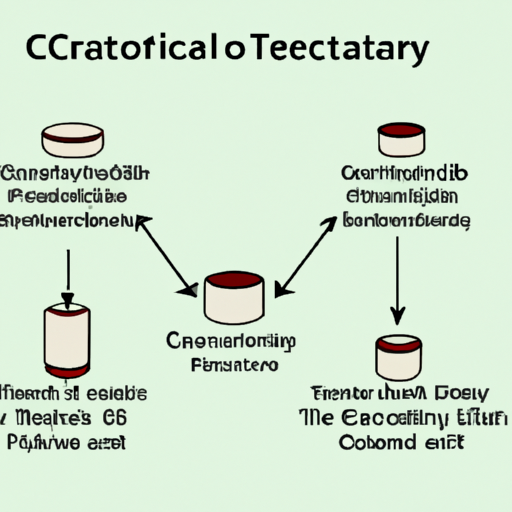The ceramic capacitor scenario encompasses various industries, including electronics, telecommunications, automotive, aerospace, and energy. These capacitors are widely used in a range of applications due to their excellent electrical properties, reliability, and cost-effectiveness. In this article, we will explore the significance of ceramic capacitors in each of these industries and discuss their role in shaping technological advancements.

2. Telecommunications Industry: In the telecommunications industry, ceramic capacitors play a vital role in ensuring reliable communication networks. They are used in base stations, routers, switches, and other network equipment. Ceramic capacitors help stabilize voltage levels, filter out unwanted signals, and provide decoupling and bypassing functions. Their high capacitance and low equivalent series resistance (ESR) make them suitable for high-frequency applications.
3. Automotive Industry: The automotive industry heavily relies on ceramic capacitors for various applications. They are used in engine control units (ECUs), powertrain systems, infotainment systems, and safety features like airbags and anti-lock braking systems (ABS). Ceramic capacitors provide stable voltage supply, noise reduction, and protection against voltage spikes and electromagnetic interference (EMI). They are also used in electric and hybrid vehicles for energy storage and power management.
4. Aerospace Industry: In the aerospace industry, ceramic capacitors are crucial for reliable and efficient operation of aircraft and spacecraft. They are used in avionics systems, navigation equipment, communication systems, and satellite technology. Ceramic capacitors offer high capacitance density, low weight, and excellent thermal stability, making them suitable for extreme temperature and vibration conditions. They ensure proper functioning of critical systems and contribute to the overall safety and performance of aerospace vehicles.
5. Energy Industry: The energy industry utilizes ceramic capacitors in various power generation, transmission, and distribution systems. They are used in renewable energy sources like solar and wind power systems, where they help regulate voltage, store energy, and improve power quality. Ceramic capacitors are also employed in power electronics, inverters, and energy storage systems. Their high voltage ratings, low losses, and long operational life make them essential components in the energy sector.
In conclusion, the ceramic capacitor scenario encompasses a wide range of industries, including electronics, telecommunications, automotive, aerospace, and energy. These capacitors are indispensable components that provide essential functions such as energy storage, voltage regulation, noise suppression, and signal filtering. Their unique electrical properties, reliability, and cost-effectiveness have made them a preferred choice in various technological applications. As industries continue to advance, the demand for ceramic capacitors is expected to grow, driving further innovation and development in this field.
The ceramic capacitor scenario encompasses various industries, including electronics, telecommunications, automotive, aerospace, and energy. These capacitors are widely used in a range of applications due to their excellent electrical properties, reliability, and cost-effectiveness. In this article, we will explore the significance of ceramic capacitors in each of these industries and discuss their role in shaping technological advancements.

2. Telecommunications Industry: In the telecommunications industry, ceramic capacitors play a vital role in ensuring reliable communication networks. They are used in base stations, routers, switches, and other network equipment. Ceramic capacitors help stabilize voltage levels, filter out unwanted signals, and provide decoupling and bypassing functions. Their high capacitance and low equivalent series resistance (ESR) make them suitable for high-frequency applications.
3. Automotive Industry: The automotive industry heavily relies on ceramic capacitors for various applications. They are used in engine control units (ECUs), powertrain systems, infotainment systems, and safety features like airbags and anti-lock braking systems (ABS). Ceramic capacitors provide stable voltage supply, noise reduction, and protection against voltage spikes and electromagnetic interference (EMI). They are also used in electric and hybrid vehicles for energy storage and power management.
4. Aerospace Industry: In the aerospace industry, ceramic capacitors are crucial for reliable and efficient operation of aircraft and spacecraft. They are used in avionics systems, navigation equipment, communication systems, and satellite technology. Ceramic capacitors offer high capacitance density, low weight, and excellent thermal stability, making them suitable for extreme temperature and vibration conditions. They ensure proper functioning of critical systems and contribute to the overall safety and performance of aerospace vehicles.
5. Energy Industry: The energy industry utilizes ceramic capacitors in various power generation, transmission, and distribution systems. They are used in renewable energy sources like solar and wind power systems, where they help regulate voltage, store energy, and improve power quality. Ceramic capacitors are also employed in power electronics, inverters, and energy storage systems. Their high voltage ratings, low losses, and long operational life make them essential components in the energy sector.
In conclusion, the ceramic capacitor scenario encompasses a wide range of industries, including electronics, telecommunications, automotive, aerospace, and energy. These capacitors are indispensable components that provide essential functions such as energy storage, voltage regulation, noise suppression, and signal filtering. Their unique electrical properties, reliability, and cost-effectiveness have made them a preferred choice in various technological applications. As industries continue to advance, the demand for ceramic capacitors is expected to grow, driving further innovation and development in this field.